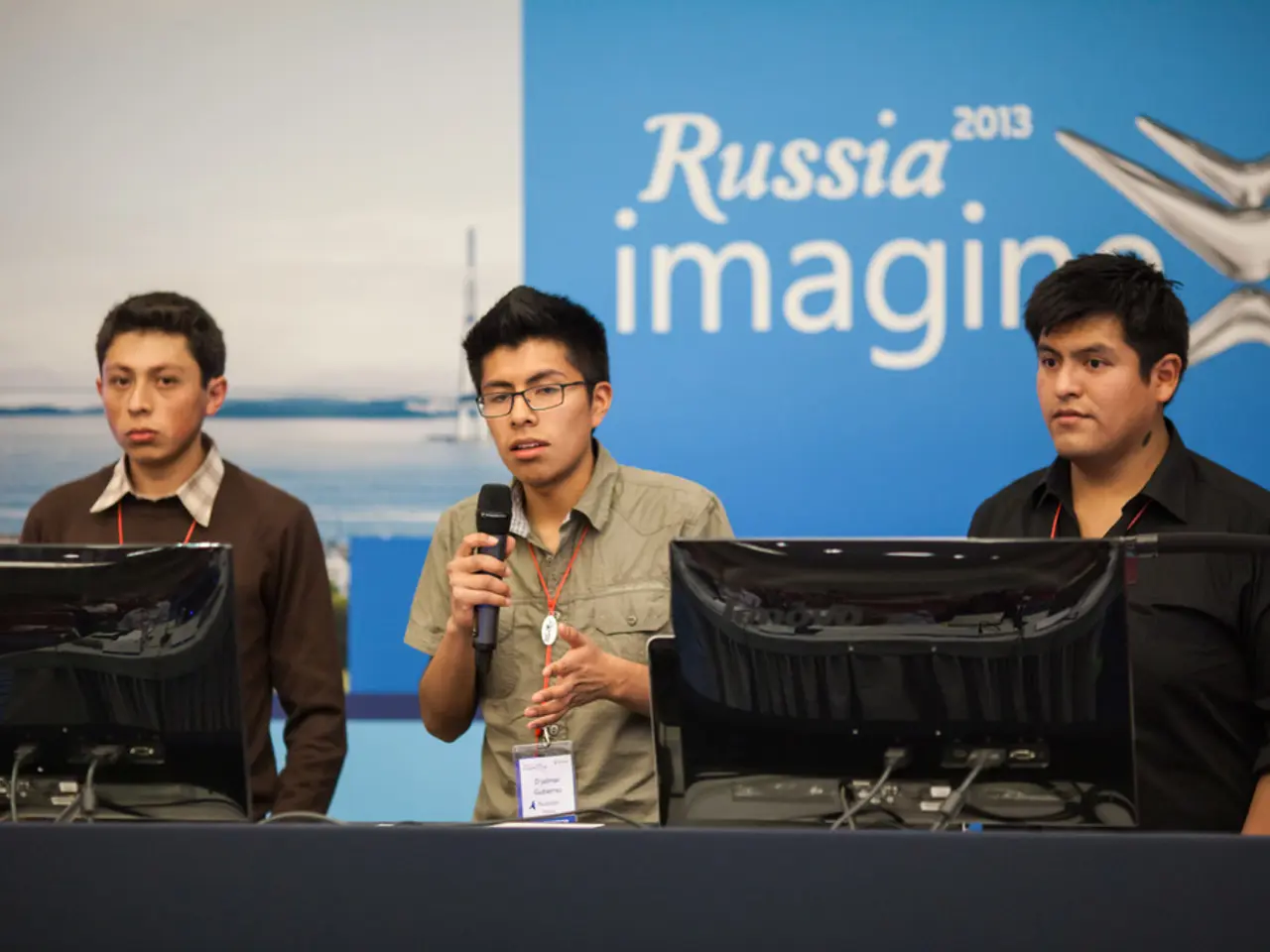Unmanned Aerial Vehicles of Russian Origin Threaten Minsk's Endeavors to Enhance Ties with the Western World
In a series of events that have sparked concern in the region, Belarus and Poland have found themselves at odds over a number of issues, including drone incursions, political prisoners, and military exercises. On September 10, Russian drones crossed Belarus's western border, causing tension between the two nations. The Belarusian General Staff, in collaboration with Poland, helped intercept these drones and warned Warsaw about their movement towards the border, while also receiving warnings from Poland about drones flying from Ukraine. This incident prompted an urgent response from Poland, with the transfer of 40,000 troops to the border and the sourcing of additional air defense systems and aircraft from NATO. The same day, a U.S. diplomatic delegation also crossed Belarus's western border. This visit came after the lifting of aviation sanctions against Minsk, indicating renewed diplomatic engagement between the two nations. However, the European Union has not yet lifted any of its own sanctions against Belarus. The active phase of the Zapad 2025 joint military exercises with Russia began at Belarusian training grounds on September 12. These exercises were perceived by neighbors as an aggressive move, despite Lukashenko's announcement that the maneuvers would be moved further away from the border with NATO than originally planned. In response, Warsaw announced the complete closure of its border with Belarus during the active phase of the military exercises, with plans to lift it only when the threat level recedes. Amidst these tensions, Alexander Lukashenko, Belarus's contested leader, released thirty-eight Belarusian political prisoners and fourteen Western nationals, including journalists and politicians. This release of political prisoners in exchange for the lifting of sanctions is ethically and politically complex, as Lukashenko can easily fill prisons with new people to use as bargaining chips. The military context complicates discussions of the price tag for the next concessions, but the bargaining season is open, with calls for more exchanges likely to be heard in Europe. Minsk is keen to avoid a breakdown in dialogue with the United States or a protracted Polish transport blockade due to the importance of the railway connection with Poland for the main overland transit corridor for Chinese goods to and from the EU. In a significant development, Lukashenko spoke to Trump by telephone in mid-August, taking the dialogue with the United States to a new level. Simultaneously, a Belarusian spy ring was detained in the Czech Republic, Poland, and Romania, leading to the expulsion of one diplomat each from Prague and Warsaw. As the situation continues to evolve, it is clear that the relationship between Belarus and Poland, and Belarus and the West, is fraught with tension and complexity. The release of political prisoners, the lifting of sanctions, and the ongoing military exercises all serve as potential bargaining chips in a delicate game of diplomacy. The coming weeks and months will undoubtedly see further developments in this unfolding story.
Read also:
- United States tariffs pose a threat to India, necessitating the recruitment of adept negotiators or strategists, similar to those who had influenced Trump's decisions.
- Weekly happenings in the German Federal Parliament (Bundestag)
- Southwest region's most popular posts, accompanied by an inquiry:
- Discussion between Putin and Trump in Alaska could potentially overshadow Ukraine's concerns








